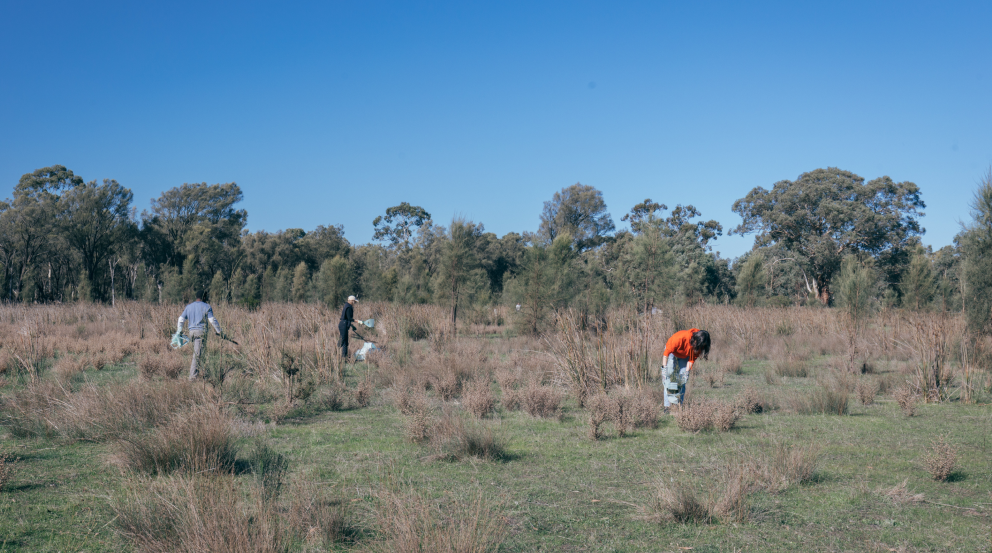When Helen Millicer and Gail Greatorex put their heads together to solve the climate crisis, they wondered: was there anyone actually working with member groups and associations? Turns out, there wasn’t. And so ClimateWise Associations was born.
It began with the bushfires. In 2020, as wildfires raged up and down the east coast of Australia, Helen Millicer and Gail Greatorex invited a small group of professional friends over to figure out how they could have a bigger impact on the climate crisis. The energy in the room was palpable, and talk quickly turned to action.
“Because I work with associations through my business in product safety,” Gail says, “I thought, ‘I wonder if anyone’s paying attention to associations in regards to climate…’ And it turned out there was very little going on, if anything. So that’s what started the idea.”
Helen and Gail went on to establish ClimateWise Associations, a not-for-profit that works with professional bodies and industry associations throughout Australia, helping them decarbonise their operations and educate and motivate their members. Thousands and thousands of members. It’s a forehead-slappingly good idea.
“We recognised that there was a gap there,” says Helen. “Member-based organisations are so important for Australian society, the economy, the business community, and the wider community. They're the network that connects all parts of our society.”
The potential for this sort of climate advocacy and engagement is huge. According to the Australian Charities and Not-For-Profits Commission (ACNC), there are roughly 2,637 industry associations in Australia (not to mention the 57,000-odd not-for-profit associations. ClimateWise Associations wants to tap into that potential for collective action. “At the moment, most associations are running on business-as-usual, 1970s kind of thinking,” Helen says. “They don’t usually integrate best practice for emissions reduction themselves.

“So we’ve got a situation now, in 2023, where you can be a member of most associations in Australia, and have no questions, discussions, training or support around emissions reduction or the impacts of climate change. You can be a builder, build unsustainable houses, then go on to win industry awards. Hard to believe.”
ClimateWise Associations tackles this problem in a few ways. The first is their free online Toolkit, which is like a step-by-step playbook to help associations totally integrate actions to become leaders on climate and decarbonisation. The second is a handy Rating Tool, which allows organisations to measure their efforts and prioritise ways to become climate-wise. There’s also a growing Document Library, which includes advice and tips for association members, a checklist for holding sustainable events, and other great resources. All of these are available for free.
“In a nutshell, it's providing associations with education, to better understand climate change and how it affects their members. Ways to mitigate. Ways to adapt. And ways to be more resilient,” says ClimateWise research assistant, Rosie Pham, a proud Bank Australia customer.
“The idea was to make it as easy as possible,” adds Gail, “so they wouldn’t have to go searching for all this information. We’ve built a library of resources that associations can use, and that are directly relevant to how they operate.”
Helen agrees. “By embedding climate risk management and emissions reduction through associations, we can change the training they deliver, their strategies, programs, whom they recognise through their awards, their scholarships, and even where they invest their money.

Associations also tend to know their sectors best, so they’re well positioned to help members spot risks and opportunities within that particular sector. Is a certain industry facing a downturn or threats due to extreme weather? Can a sector pivot to become not only more sustainable, but more efficient too? “There are so many opportunities that they can best recognise and implement,” Helen says. “Somebody from outside might not even spot them.”
Helen and Gail both have full-time jobs – Gail’s a product safety consultant, while Helen works in corporate sustainability – and they’re planning to scale ClimateWise Associations over the next few years. The organisation is currently seeking funding partners. Griffith University’s Climate Ready Initiative is supporting the development of ClimateWise Associations and is engaged in discussions to become the home of the program.
“There is such fantastic opportunity for associations to become leaders,” Gail says, “the large and the smaller ones, if they start with one or two climate-y things, they are moving forward in the right direction. So often, taking that one small action spurs us to want todo more.”
“It’s a journey” Helen says. “We have a saying in our house: ‘You don’t wait till all the lights are green before you leave home.’ So if you’re committed to seeing the future that you want, you have to get out there and do something about it.”








